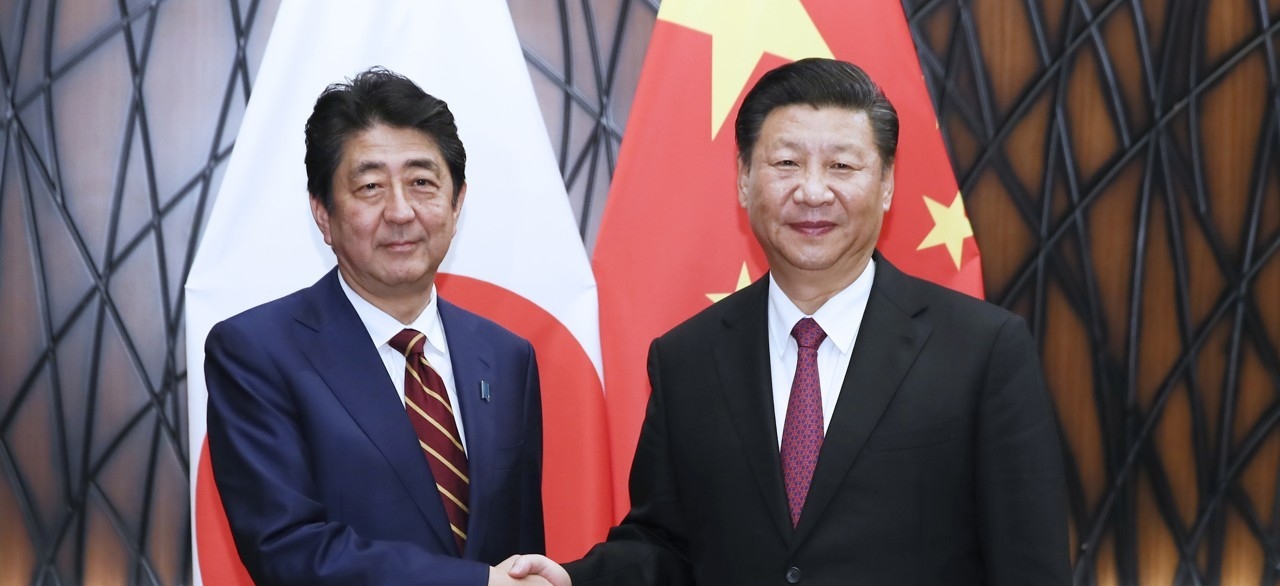Japan China currency exchange
May 4, 2018 | Expert Insights

Japan and China are reportedly in talks to re-establish a currency swap plan, after a deterioration of ties in recent years. Japanese Prime Minister Shinzo Abe will meet the Premier of the Chinese State Council Li Keqiang later this month. This year also marks the 40th anniversary of the Treaty of Peace and Friendship between Japan and the People’s Republic of China.
Background
International relations between the People’s Republic of China and the State of Japan have been strongly influenced throughout history by China with its language, architecture, culture, religion, philosophy, and law. The Chinese government believes that the relationship between the two nations has been strained mainly because of their wartime past. However, according to the Japanese government, the expansion of the Chinese army and its forceful actions have been damaging the relations.
China-Japan relations have been considerably better under Shinzo Abe as Prime Minister of Japan since September 2006. However, in the early 2010s, relations deteriorated again, when Japan accused China of withholding its reserves of valuable rare-earth elements. The dispute at the Senkaku/Diaoyu Islands also resulted in several aggressive encounters in the East China Sea. The Senkaku islands were formally claimed by Japan in 1895; however, in the 1970s, China began to reassert its claims over the islands. In 2015, Chinese aircraft approached Japan’s airspace more than 570 times.
Leaders from both nations have tried to suppress these tensions as the two nations are close business partners. In terms of nominal GDP, China and Japan's economies are respectively the world's second and third-largest economies. In 2008, trade between the two nations grew to US$266.4 billion, a rise of 12.5% in 2007, making China and Japan the top two-way trading partners. In 2009, China was the biggest destination for Japanese exports.
Chinese President Xi Jinping and Japanese Prime Minister Abe Shinzo have met several times to build a cordial relationship between the two countries. In 2017, the two heads of state pledged to improve ties. Presently, both nations are cooperating in numerous areas, including boosting global trade and economic activities. They are also working together on the One Belt One Road Initiative and setting up maritime and air contact systems to enhance communication.
Analysis
Japan and China have agreed on a potential ¥3 trillion currency swap plan. Such an arrangement between the Bank of Japan and the People’s Bank of China would allow an exchange of currency. This arrangement would ensure Japan’s bank would have access to the yuan, even during a financial crisis, and vice versa. China and Japan’s previous currency pact ended in 2013 and was not renewed after ties deteriorated over territorial disputes in the East China Sea.
The plan could help control the volatility of exchange rates and reduce liquidity concerns about Chinese currency in Japan. It would ensure a more stable financial relationship by decreasing risks surrounding currency fluctuations. It could also help foster business ties between the two nations, as it could allow business to obtain financing at a lower interest rate than that available in the local market.
Analysts have stated that this could be part of broader shift in policy to improve bilateral ties and strengthen financial cooperation. Prime Minister Shinzo Abe and Chinese Premier Li Keqiang are scheduled to meet at a summit in Tokyo on May 9th. Abe will also host Li Keqiang and South Korean President Moon Jae-in for talks, where Japan may discuss its interests in the Korean Peninsula.
In April, China and Japan held their first high-level economic talks in almost eight years following trade threats from the United States. The two nations discussed fair and free transfers of technology and exchanges of intellectual property, as well as cooperation on the US steel tariffs, which were imposed on both countries earlier this year. Read more on these talks here.
The People’s Bank of China has a currency swap line with over 30 central banks across the globe, worth a maximum combined value of 3.33 trillion yuan ($490 billion) in 2017. Most recently, China signed a $2.4 Billion Currency-Swap with Nigeria in efforts to boost commercial ties. India has a $50 billion currency swap line with Japan but does not have a similar arrangement with China.
Assessment
Our assessment is that China and Japan have indicated that they may be looking to boost economic ties. As stated previously, we believe that a stronger relationship between China and Japan could result in a rise in intra-Asian trade. The two nations may be aware of the fact that they remain heavily reliant on the American market. A currency swap could reduce the need to rely on the dollar for bilateral trade and encourage business relationships between the two Asian powers. We believe that this may have to do with the recent re-alignment of geopolitical forces in the region.








Comments